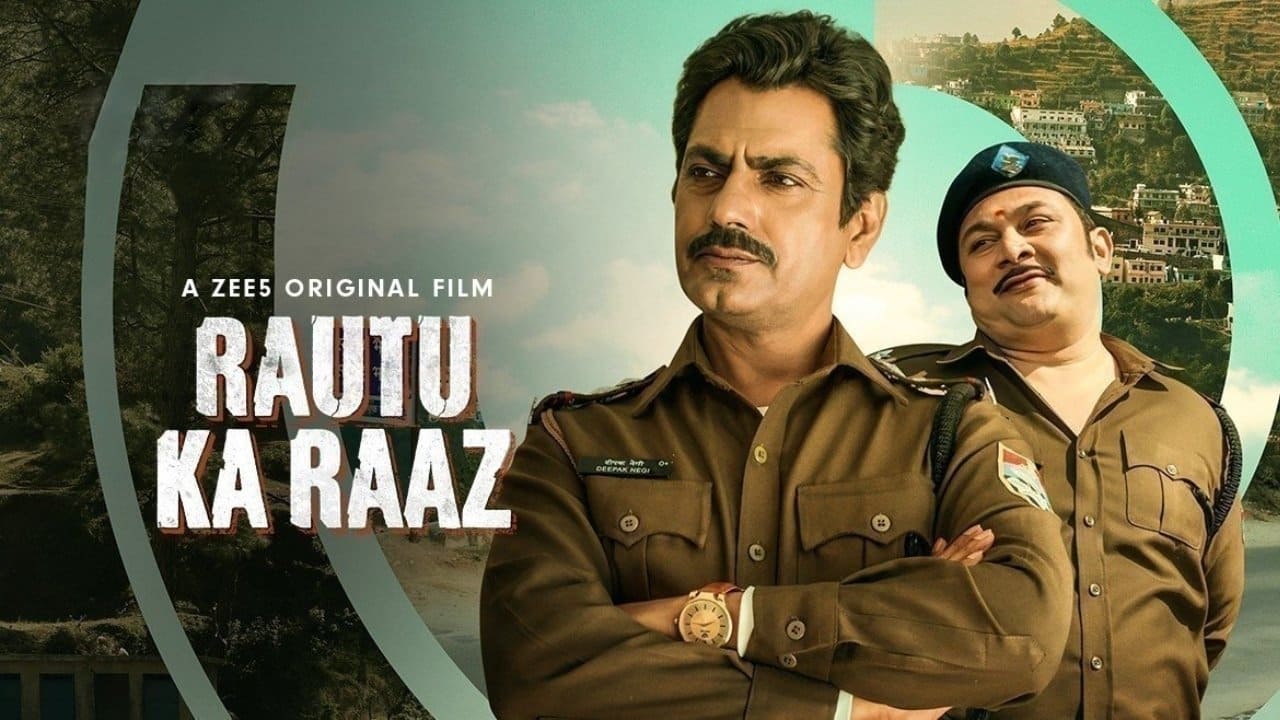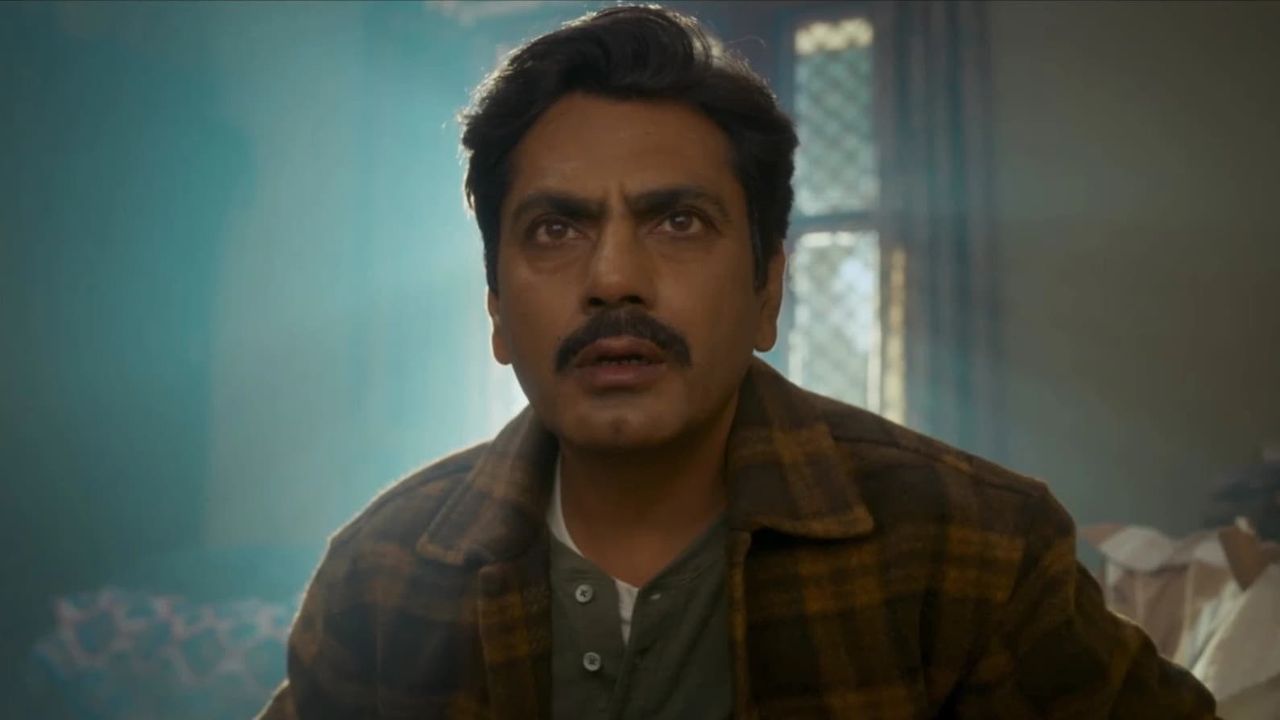Unveiling The Secrets Of "Rautu Ka Raaz": A Captivating Journey
Discover the hidden world of "Rautu Ka Raaz" and explore its profound meanings and cultural significance. This article delves into the origins, interpretations, and societal relevance of this intriguing phrase. Prepare to embark on a fascinating journey that uncovers the layers of this mysterious concept.
Rautu Ka Raaz is more than just a phrase; it represents the essence of human emotions and the complexities of relationships. Its origins lie deep within the cultural fabric of South Asia, where language serves as a vessel for expressing the inexpressible. As we explore its meaning, we uncover how it resonates with universal human experiences.
Throughout this article, we will dissect the various dimensions of Rautu Ka Raaz, including its historical context, linguistic nuances, and contemporary relevance. By the end, you will have a comprehensive understanding of why this phrase continues to captivate hearts and minds across generations.
Read also:Stream Brooklyn 99 A Comprehensive Guide To Watching Your Favorite Comedy
Table of Contents
- The Origin of Rautu Ka Raaz
- Understanding the Meaning of Rautu Ka Raaz
- Cultural Significance of Rautu Ka Raaz
- Linguistic Analysis of Rautu Ka Raaz
- Historical Context of Rautu Ka Raaz
- Modern Interpretations of Rautu Ka Raaz
- Rautu Ka Raaz in Society
- Psychological Insights into Rautu Ka Raaz
- Rautu Ka Raaz in Literature and Media
- Conclusion: Embracing the Mystery
The Origin of Rautu Ka Raaz
The phrase "Rautu Ka Raaz" finds its roots in the rich linguistic heritage of South Asia. It is believed to have originated in the Urdu language, which is heavily influenced by Persian, Arabic, and Hindi. The term "Rautu" refers to the night, while "Raaz" signifies a secret or mystery. Together, they evoke an image of the quiet, introspective moments of the night, where secrets are whispered and truths revealed.
Historically, the phrase has been used in poetry and literature to express the depth of human emotions, particularly those related to love and longing. Poets like Mirza Ghalib and Allama Iqbal have referenced similar themes in their works, highlighting the universal appeal of this concept.
Historical Usage in Poetry
In classical Urdu poetry, the night is often personified as a confidant or a witness to the innermost thoughts of the poet. This tradition has contributed to the enduring popularity of phrases like Rautu Ka Raaz, which encapsulate the essence of emotional vulnerability and introspection.
- Classical poets frequently used nocturnal imagery to convey complex emotions.
- The phrase reflects the cultural significance of nighttime as a time for reflection and self-discovery.
Understanding the Meaning of Rautu Ka Raaz
At its core, Rautu Ka Raaz refers to the secrets of the night, symbolizing the mysteries that unfold during the quiet hours. It can be interpreted in various ways, depending on the cultural and individual context. For some, it represents the hidden desires and emotions that emerge under the cover of darkness, while for others, it signifies the deeper truths that are revealed during moments of solitude.
This multifaceted interpretation makes Rautu Ka Raaz a powerful metaphor for the complexities of human existence. It invites us to explore the unspoken aspects of our lives and to embrace the unknown with curiosity and openness.
Key Interpretations
Here are some common interpretations of Rautu Ka Raaz:
Read also:Poldark Tv Cast A Comprehensive Guide To The Stars Behind The Cornish Saga
- Emotional Depth: The phrase symbolizes the depth of human emotions, particularly those related to love and longing.
- Spiritual Reflection: It can also represent the spiritual journey of self-discovery and enlightenment.
- Cultural Heritage: In a broader sense, Rautu Ka Raaz embodies the cultural and historical legacy of South Asia.
Cultural Significance of Rautu Ka Raaz
Rautu Ka Raaz holds immense cultural significance, particularly in the context of South Asian traditions. It reflects the region's rich literary and artistic heritage, where language serves as a medium for expressing profound emotions and philosophical ideas. The phrase has been woven into the fabric of cultural narratives, influencing art, music, and literature across generations.
In many cultures, the night is seen as a time for introspection and connection with the divine. This perspective aligns with the symbolic meaning of Rautu Ka Raaz, which invites individuals to explore the deeper truths of their existence.
Cultural Manifestations
The cultural significance of Rautu Ka Raaz is evident in various forms of artistic expression:
- Poetry: Classical Urdu and Hindi poetry frequently references the night as a symbol of emotional depth.
- Music: Traditional music, particularly ghazals and qawwalis, often incorporates themes related to Rautu Ka Raaz.
- Film and Media: Bollywood films and other media platforms have popularized the phrase, bringing it to a global audience.
Linguistic Analysis of Rautu Ka Raaz
From a linguistic perspective, Rautu Ka Raaz is a fascinating example of how language can convey complex ideas through simple yet evocative phrases. The term "Rautu" derives from the Persian word "raat," meaning night, while "Raaz" comes from the Arabic word "raaz," signifying a secret or mystery. Together, they create a phrase that is both poetic and profound.
Language plays a crucial role in shaping our understanding of the world, and Rautu Ka Raaz exemplifies this phenomenon. Its linguistic structure invites us to explore the interplay between sound, meaning, and cultural context, offering insights into the power of language as a tool for communication and expression.
Linguistic Nuances
The linguistic nuances of Rautu Ka Raaz include:
- The use of metaphorical language to convey abstract concepts.
- The blending of Persian, Arabic, and Hindi influences to create a unique linguistic identity.
- The ability to evoke emotional responses through its rhythmic and melodic qualities.
Historical Context of Rautu Ka Raaz
The historical context of Rautu Ka Raaz is deeply intertwined with the cultural and political history of South Asia. During the Mughal era, the region witnessed a flourishing of art and literature, with poets and writers using the night as a recurring motif in their works. This period saw the emergence of phrases like Rautu Ka Raaz, which captured the essence of human emotions and experiences.
As the region underwent various socio-political changes, the meaning and significance of Rautu Ka Raaz evolved, reflecting the changing cultural landscape. Today, it continues to resonate with people across the globe, transcending geographical and cultural boundaries.
Historical Evolution
The historical evolution of Rautu Ka Raaz can be traced through:
- The Mughal era, where it gained prominence in classical poetry.
- The colonial period, where it adapted to new cultural influences.
- The modern era, where it has been reinterpreted in contemporary contexts.
Modern Interpretations of Rautu Ka Raaz
In the modern era, Rautu Ka Raaz has taken on new meanings and interpretations, reflecting the changing dynamics of society. It is often used in popular culture, including films, music, and literature, to convey themes of love, longing, and self-discovery. Its universal appeal lies in its ability to resonate with people from diverse backgrounds and cultures.
Contemporary interpretations of Rautu Ka Raaz emphasize the importance of embracing the unknown and exploring the depths of human experience. This perspective aligns with the growing trend of introspection and self-awareness in today's world.
Modern Applications
Modern applications of Rautu Ka Raaz include:
- Its use in films and music to convey emotional depth.
- Its incorporation into self-help literature and motivational content.
- Its relevance in discussions about mental health and emotional well-being.
Rautu Ka Raaz in Society
Rautu Ka Raaz plays a significant role in shaping societal perceptions of love, relationships, and personal growth. It serves as a reminder of the importance of introspection and self-awareness in navigating the complexities of modern life. By encouraging individuals to embrace their vulnerabilities and explore their inner truths, it fosters a culture of empathy and understanding.
In today's fast-paced world, where distractions abound, the concept of Rautu Ka Raaz offers a much-needed respite, inviting individuals to pause and reflect on their lives and relationships.
Societal Impact
The societal impact of Rautu Ka Raaz includes:
- Promoting emotional intelligence and self-awareness.
- Fostering deeper connections and understanding in relationships.
- Encouraging individuals to embrace their vulnerabilities and grow from them.
Psychological Insights into Rautu Ka Raaz
From a psychological perspective, Rautu Ka Raaz offers valuable insights into the human psyche. It highlights the importance of introspection and self-reflection in achieving personal growth and emotional well-being. By encouraging individuals to explore their inner truths and confront their fears, it promotes a healthier and more balanced approach to life.
Research in psychology supports the idea that embracing vulnerability and engaging in self-reflection can lead to greater emotional resilience and mental clarity. This aligns with the core message of Rautu Ka Raaz, which emphasizes the value of exploring the unknown aspects of our lives.
Psychological Benefits
The psychological benefits of embracing Rautu Ka Raaz include:
- Improved emotional intelligence and self-awareness.
- Enhanced ability to cope with stress and uncertainty.
- Greater clarity and focus in decision-making.
Rautu Ka Raaz in Literature and Media
Rautu Ka Raaz has been a recurring theme in literature and media, influencing countless works across genres and languages. From classical Urdu poetry to contemporary novels, its presence can be felt in various forms of artistic expression. Its ability to evoke deep emotional responses has made it a favorite among writers and artists alike.
In recent years, Rautu Ka Raaz has gained popularity in global media, with filmmakers and musicians incorporating its themes into their works. This has contributed to its growing recognition and appreciation among international audiences.
Media Representation
Rautu Ka Raaz is represented in media through:
- Bollywood films that explore themes of love and longing.
- Contemporary novels and poetry that delve into the complexities of human emotions.
- Music videos and songs that use nocturnal imagery to convey emotional depth.
Conclusion: Embracing the Mystery
In conclusion, Rautu Ka Raaz is more than just a phrase; it is a profound concept that invites us to explore the depths of human experience. Through its rich cultural heritage and universal appeal, it continues to captivate hearts and minds across generations. By embracing the mystery of Rautu Ka Raaz, we can gain valuable insights into ourselves and the world around us.
We encourage you to share your thoughts and experiences related to Rautu Ka Raaz in the comments section below. Your feedback is valuable and helps us create content that resonates with our readers. Don't forget to explore our other articles on related topics and continue your journey of discovery.
Bling Empire Cast: A Comprehensive Guide To The Glamorous World Of Reality TV
The Last Ronin: A Deep Dive Into The Iconic Story And Legacy
Christina Aguilera Movies: A Dive Into Her Cinematic Journey


